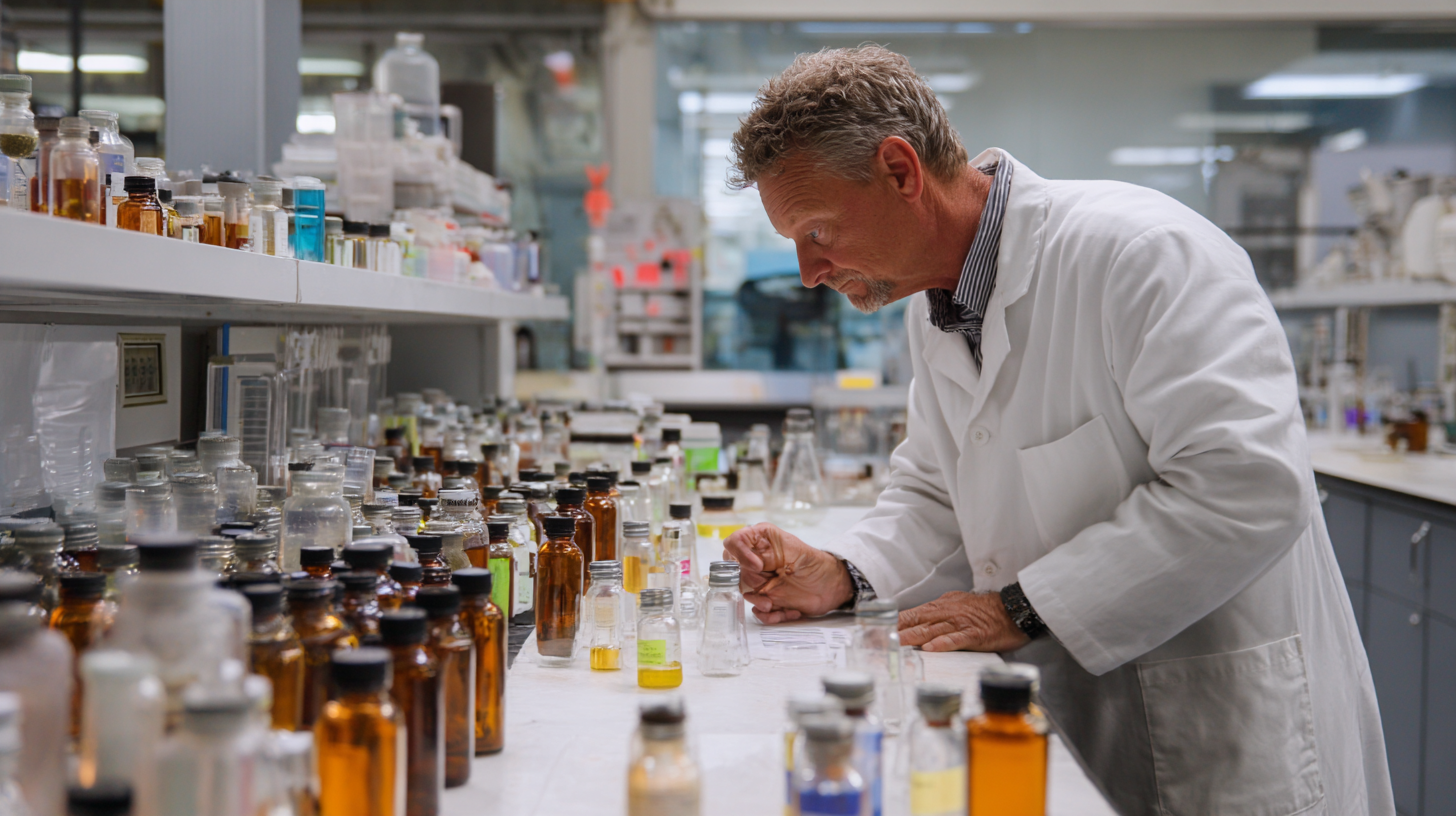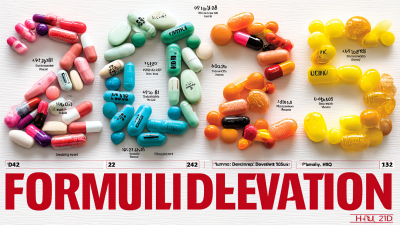In the rapidly evolving world of product innovation, the significance of Formulation Development cannot be overstated. This intricate process serves as the backbone of various industries, from pharmaceuticals to cosmetics, where the right formulation can make or break a product's success in the market. Understanding the nuances of formulation requires a blend of scientific knowledge, creativity, and strategic thinking. This guide aims to demystify the complexities surrounding formulation development, offering innovators actionable insights and practical steps to navigate this critical phase. By exploring key methodologies, essential ingredients, and best practices, readers will gain a comprehensive understanding of how to effectively approach formulation development, ultimately unlocking the potential for groundbreaking creations and ensuring their products meet both consumer needs and regulatory standards.

Formulation development is a critical process in the pharmaceutical industry, aimed at optimizing drug delivery and efficacy. Understanding the fundamentals of this field involves recognizing the importance of balancing various factors, including the active pharmaceutical ingredients (APIs), excipients, and the intended route of administration. This intricate process requires a thorough understanding of chemical interactions, stability considerations, and patient-centered outcomes.
**Tips:** Focus on thorough research regarding the physicochemical properties of APIs before beginning formulation development. This knowledge will guide decisions on the choice of excipients and the formulation technique, ensuring compatibility and stability in the final product.
Additionally, iterative testing is essential. Formulating a drug is akin to a scientific equation; it often requires multiple adjustments. Utilizing techniques such as Design of Experiments (DOE) can streamline this process by allowing innovators to assess numerous variables systematically and identify optimal conditions.
**Tips:** Always prioritize scalability in formulation development. What works in a lab setting may not translate directly to large-scale manufacturing. Ensuring that your formulation can be adapted for mass production early in the development phase can save time and resources in the long run.

The drug formulation process is a multi-stage journey that transforms an initial concept into a commercial product. It begins with the preformulation stage, where the physicochemical properties of the active pharmaceutical ingredient (API) are thoroughly assessed. Understanding these properties is essential as it influences the choice of excipients, the formulation design, and ultimately, the drug's efficacy and safety profile. Innovators must conduct rigorous testing to identify optimal conditions for stability, solubility, and bioavailability during this stage.
Following preformulation, the next key stage is the formulation development itself, where different combinations of ingredients are explored to achieve the desired release characteristics and therapeutic effects. This phase often involves designing various prototypes and conducting stability studies to ensure the formulation remains effective over its shelf life. Once a promising formulation is selected, the focus shifts towards scale-up and manufacturing, where considerations for quality control, compliance with regulatory standards, and cost-effectiveness come to the forefront. Each stage builds upon the previous one, ensuring that the final product not only meets regulatory requirements but also serves the needs of patients effectively upon commercialization.
In the realm of formulation development, understanding the influential factors that impact formulation success is crucial for innovators aiming to stay ahead of market trends and consumer demands. According to a recent report by Grand View Research, the global market for formulation development is projected to reach USD 24.4 billion by 2027, growing at a CAGR of 9.4%. This growth is largely driven by the increasing demand for personalized medications and specialty pharmaceuticals, which necessitate innovative formulation strategies that can cater to specific consumer needs.

Consumer preferences are rapidly evolving, with a significant focus on clean label products and sustainable ingredients. Research by Mintel indicates that 75% of consumers are willing to pay more for products that are perceived as natural or environmentally friendly. Therefore, formulators must not only ensure efficacy and safety but also align their products with the ethical considerations and lifestyle choices of modern consumers. Addressing market needs while incorporating these trends can significantly enhance the potential for successful formulation outcomes, underscoring the importance of innovative thinking in this dynamic industry.
In the rapidly evolving landscape of formulation development, technological innovations play a pivotal role in enhancing efficiency and effectiveness. Advancements such as artificial intelligence (AI), machine learning, and advanced data analytics have significantly transformed traditional methods. According to a recent report by Grand View Research, the global market for formulation development is expected to reach approximately $6 billion by 2026, driven by these technological enhancements that streamline processes and reduce time-to-market.
One standout innovation is the use of cloud-based platforms, which enable real-time collaboration among multidisciplinary teams. This integration leads to improved communication and data sharing, ensuring that all stakeholders are aligned throughout the development process. Additionally, the incorporation of high-throughput screening technologies allows formulators to test multiple variables simultaneously, accelerating the optimization process. A study by MarketsandMarkets indicates that the high-throughput screening market is projected to grow from $4.1 billion in 2020 to $6.9 billion by 2025, highlighting the rising demand for faster development cycles within the industry. As these innovations continue to unfold, they are redefining the frontier of formulation development, making it an exciting time for innovators in the field.
| Innovation Technique | Description | Benefits | Applications |
|---|---|---|---|
| High-Throughput Screening | Automated method for testing multiple formulations quickly. | Increased efficiency, rapid identification of viable formulations. | Pharmaceutical, Agricultural Chemicals. |
| Computer-Aided Formulation | Uses software to predict optimal formulation combinations. | Reduced trial-and-error, faster product development. | Cosmetics, Food Products. |
| 3D Printing in Formulation | Creating complex formulations through additive manufacturing. | Customization, waste reduction, rapid prototyping. | Personalized Medicine, Specialty Chemicals. |
| Nanotechnology | Manipulating materials at the molecular or atomic level for formulation. | Enhanced performance, targeted delivery. | Pharmaceuticals, Electronics. |
| Artificial Intelligence | Utilizing algorithms to analyze data and improve formulation designs. | Data-driven insights, predictive modeling. | All industries involved in product development. |
In today’s fast-paced market, understanding regulatory considerations is essential for successful formulation development. Innovators must be aware of the guidelines set by various regulatory bodies, as these can significantly impact product approval and market entry. Compliance with regulations ensures not only that formulations are safe and effective but also that they meet the quality standards mandated by authorities.
Tips: Stay updated on the latest regulatory changes by subscribing to industry newsletters and participating in forums. Regularly review the guidance documents provided by organizations such as the FDA or EMA, as they often contain valuable insights into compliance requirements.
Effective formulation design should incorporate compliance strategies from the outset. This means engaging with regulatory experts early in the development process. Establishing a clear understanding of the targeted market’s regulations can guide formulation choices, streamline testing phases, and ultimately reduce time to market.
Tips: Create a checklist of regulatory requirements specific to your intended product and market. Collaborating with a regulatory consultant can provide nuanced insights and help tailor your formulation to meet essential compliance criteria effectively.






